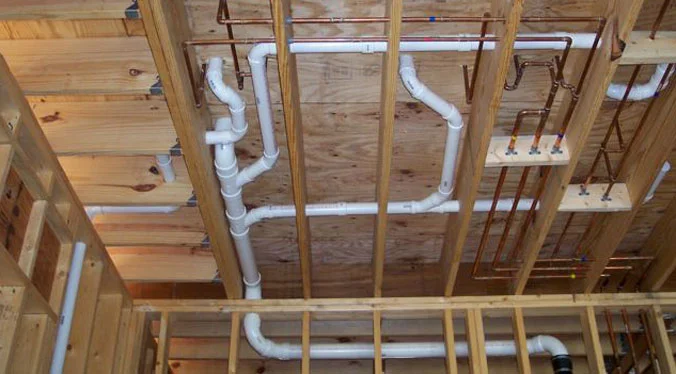Residential plumbing deals with domestic services for your house, such as drain, sewer, water lines, hot water heating, and other plumbing-related fixtures. What is commercial plumbing? Commercial plumbing involves elaborate pipe and faucet installation and maintenance. It may consist of a single line or a series of pipes connected, laid out to carry water from the kitchen, living room, family room, basement, or laundry. In large commercial buildings, all these buildings are interconnected through underground pipes.

Now, when you hire a residential plumbing contractor, he or she will offer many different solutions to your problems, rather than just fixing your drainage system. Commercial plumbers may be able to handle any sink, bathtub, toilet, countertop, water heater or water distribution. There are so many different things that they can do in plumbing, but there are also many different kinds of pipes that they can use.
For example, many residential plumbers will be hired to service office buildings. Whether you are getting your sewage drain cleaned or dealing with a clogged sink, your plumber can come and take care of it. They will also be able to install the necessary piping for septic tanks in office buildings. Since many of these buildings have two floors, sewer lines must be extended many times to accommodate the demands of the building. Your plumber will know just what kind of piping is needed to do the job properly, safely, and efficiently.
If you are getting drainage work done on commercial buildings, you’ll likely be dealing with drainage pipes that have been clogged, or are leaking. The pipes of course will need to be dug up, cleaned, and reinstalled. After that the drainage system will need to be rerouted to avoid flooding. This is something that is much more complicated when it comes to residential plumbing than it is for commercial buildings.
Probably one of the most popular residential plumbing jobs is installing septic tanks. Many people don’t realize that they can hire a plumber to install their septic tank since so many people put in septic tanks in their homes. Septic tanks are responsible for holding sewage waste water, and since most residences have them, there is no reason why you shouldn’t have the same kind installed in your home as well. Your plumber can help you choose the size of the tank that is right for your home.
As far as residential plumbing problems go, many people notice that their heating and cooling systems aren’t working as well as they should. Whether you notice a drip in the middle of winter, or the water in the tub is hard and drying out, this is a sign that you might be running low on hot water supplies. Plumbers can check the circulation in your pipes to see if the problem is with the line going to your home or if it is with the drainage system that brings the water to your house. If you are dealing with leaking pipes, the plumber may recommend that you buy new ones, or that you strip away old insulation and replace it with newer, less expensive materials.
Another problem in residential plumbing that isn’t always as noticeable as some commercial plumbing issues is the clog in your sink. While it may not feel like a big difference, the fact is that it can cause major damage to your fixtures over time. While it may not feel like a big difference after a certain amount of time, it can make it difficult and even dangerous to use the sink. The longer that your sink gets clogged up, the harder it will be for you to wash your hands, and the harder it will be for you to flush down the toilet. Plumbing companies deal with this all the time, and with newer plumbing technology, they can usually clear out the clog in less time than it would take a homeowner to do it themselves.
Finally, one of the biggest problems in residential plumbing is the corrosion of the pipes under the kitchen sink. These pipes are often the first point of contact between many different fixtures within the kitchen. As they corrode, they are allowing unwanted substances in, and those substances can often lead to very dangerous problems. In most cases, a plumber can strip away the rust and corroded pipes from the inside of your home and replace them with new ones. This won’t only make it safer for your appliances, but it can also save you money by reducing your electricity bill.
